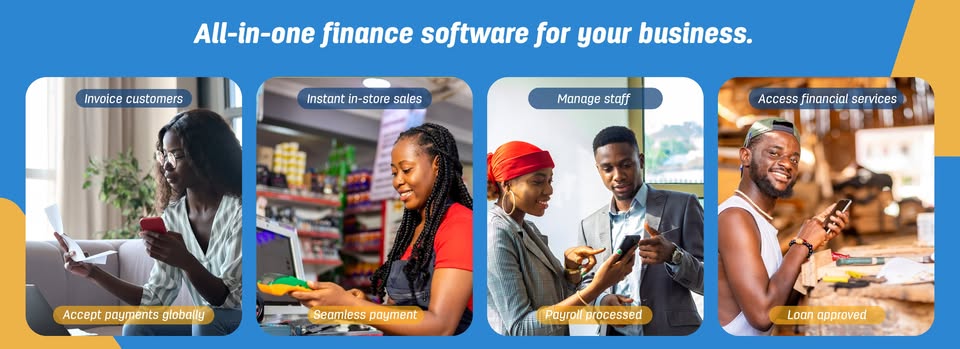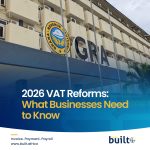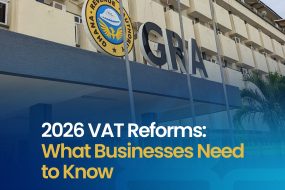
After speaking to a few professionals who had had the opportunity to work with at least an SME either as an account officer, finance officer or during an audit, it was gathered that, most of these business owners wanted to have ultimate control of their financial information without sharing. Others also had not had a holistic view of the need for bookkeeping and accounting. Some needed more education on how to classify their daily transactions if they chose to do the recording themselves or employed an amateur to do that. However, most saw the need for bookkeeping but found it expensive to hire a professional. Who then is a bookkeeper?
A bookkeeper is a person whose job is to keep or record the financial transactions of a business.
Technology leads the world, digital migration is surging / skyrocketing in Ghana and so should your business. We at Built encourage our clients to use accounting software many of which are easy to use and are available at low to no cost, be it cloud or desktop versions that can be monitored by a bookkeeper remotely. For those who still prefer the manual or traditional way of writing in books, the bookkeeper assigned to you will visit periodically to either record your transactions or check if transactions are being recorded accurately especially with the classification of expense items.
But how does outsourced bookkeeping really work? Here’s how.
- Needs assessment
Getting a bookkeeper who understands your business is paramount, because of that, we assess your entire bookkeeping system before assigning an expert to you. We believe that, drawing the right picture of the financial system of the business to the business owner, leads to an appreciation of the current and future must haves. It may be scary at first, but, entrepreneurs are all smiles when they see the progression.
- Access to financial records
The bookkeeper will then be given access to the business’s records by the business owner. For your protection, some restrictions may be put on certain information by the business owner through a Non-Disclosure Agreement (NDA). The bookkeeper may be added as a collaborator or additional user if the business uses cloud accounting software like QuickBooks Online, Xero, Sage, Wave, Odoo and some others. Also, most accounting platforms and apps have an easy way to provide access to additional users without giving full permissions. For those who prefer the physical presence of the bookkeeper, you can have them come over on agreed days to work on the records.
- Access to Bank statements and mobile money statements
The bookkeeper will also need external confirmations such as bank statements and where applicable, mobile money statements. This is because, the bank and mobile money statements summarize your activities to show what money came in and went out of the business’ accounts. This helps you track finances, identify account errors and understand your spending habits on a regular basis. The business owner can instruct his or her bank through a formal letter to send the bank statements to the bookkeeper every month or upon request. Most banks through their e-banking system, also allow the option to download your statements whenever it is needed. The first option is preferable to enable the bookkeeper do his or her job without having to bother you every time bank statements are needed to complete a task.
- Assessment of Accounting procedure
At this point, the bookkeeper will want to know if the steps in recording transactions are in accordance with the accounting principles. If there is the need, changes will be made to the Charts of accounts in the Accounting software or daybooks suggested to those who prefer the traditional method of recording transactions. Records of invoices, receipts, payroll details, tax documents and anything that concerning your business’s finances, the bookkeeper should have access to. Fortunately, some accounting software allows the user to upload scanned copies of the source documents for safe keeping. However, preserve the original copies if possible.
All these are relevant irrespective of how small or big the amount on the invoice or receipt is, be ready to share them with your bookkeeper always.
- Communication
The bookkeeper is there to grow your business with you. The bookkeeper/client relationship must be built on communication and trust. Both of you must agree on the means to communicate, the time and most importantly, the days to meet face-to-face to discuss the progress of the business. Do not feel intimidated if the bookkeeper questions or seeks clarification on certain transactions. This is to assist in proper classification of the transactions and also, for proper reporting.
Recording and keeping track of your business’s transactions need not be complicated or complex and expensive. The bookkeepers from Built Accounting have been carefully selected to use their expertise to support and promote sustainability and growth in businesses most especially, the Small and Medium Scale Enterprises (SMEs). Don’t forget to drop us a line at [email protected]












One reply on “How Does Outsourced Bookkeeping Work?”
The article has one missing point which is bookkeeping software used by bookkeeping outsourcing services like Quickbooks, xero etc, With many updates in the work process, outsourcing your bookkeeping services is a wise choice every small business is taking.